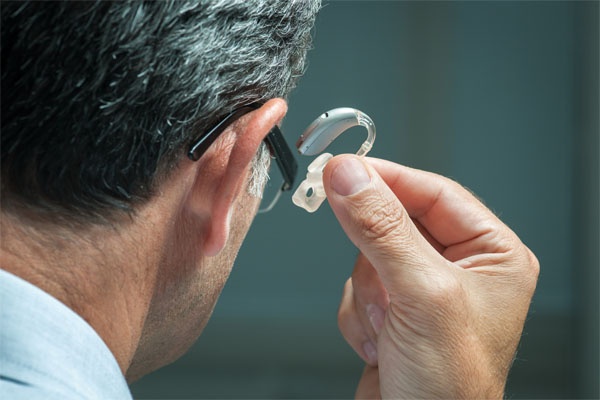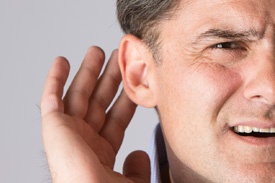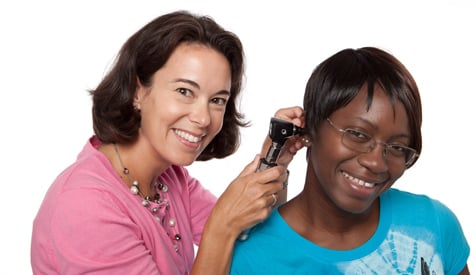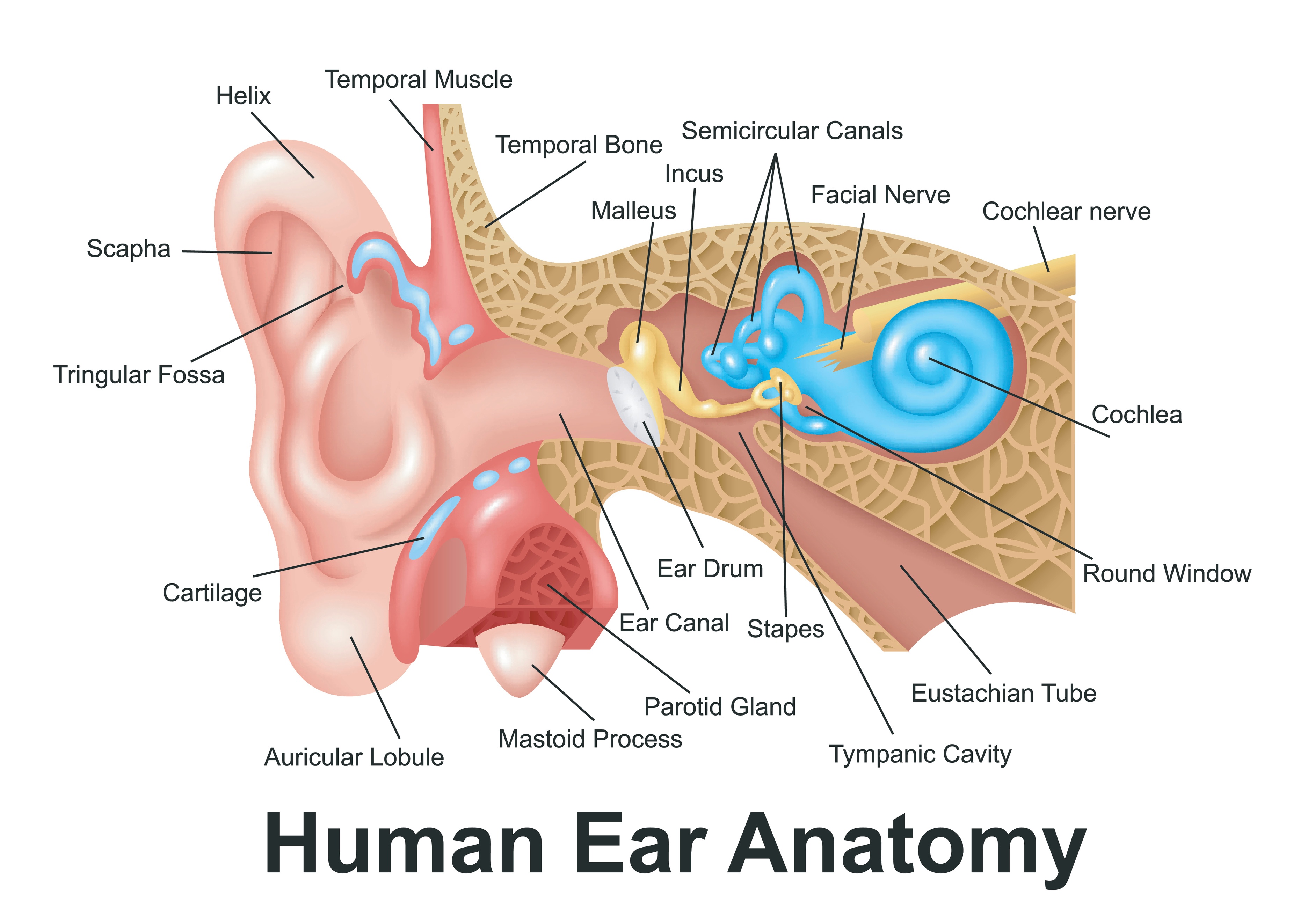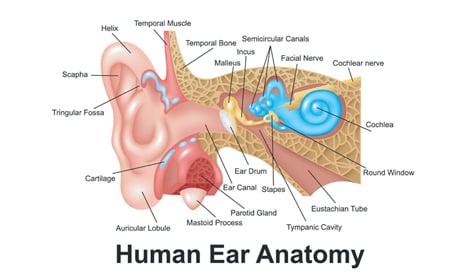The announcement by the Food and Drug Administration finalizing the ruling that allows for Over-the-Counter (OTC) hearing aid sales is good news for increased access to hearing health care. It will provide increased access to hearing aids for adults (ages 18 and older) who have mild to moderate hearing loss. This can be an initial step to the acceptance and treatment of hearing loss, much like reading glasses for eyesight. OTC hearing aids are not appropriate for children or those with moderate to severe or profound hearing loss.
As an agency with a 101-year history of providing access to hearing health care for all people including marginalized and vulnerable populations, Cleveland Hearing & Speech Center (CHSC) believes this is a step in the right direction for a more global acceptance of the treatment of hearing loss and with Baby Boomers hitting retirement ages, it could not be timelier.
However, at CHSC, we encourage people to undergo an audiologic evaluation (hearing test) before purchasing any hearing aids. A proper diagnosis of the degree of hearing loss results in a more accurately programmed hearing aid – much like a proper prescription for glasses. A hearing evaluation will also identify any underlying medical conditions that may be causing the hearing loss.
CHSC's commitment to hearing health will continue into the next century. We will continue to provide professional audiology services to those who purchase their hearing aids – now including OTC aids - but may find they need additional support.
In addition, CHSC will continue to provide our full range of hearing aid services for all degrees of hearing loss and all ages. Low-cost and no-cost options for hearing aids may include health insurance with hearing aid benefits such as some Medicare Advantage plans, Medicaid, and our Audiology Patient Assistance Program (APA).
Over-the-Counter Hearing Aids - What You Should Know
Tags: Hearing Aid, Audiology, Hearing Aids, Hearing, Hearing Loss Prevention, Hard of Hearing, Hearing Loss, "ears", Communication Access, Medicare
Tinnitus and COVID-19
It is estimated that around 15% of Americans experience tinnitus. Tinnitus is described differently by different people. It has been described as a ringing, chirping, rushing air “whooshing” noise, hissing, or whining sound. No matter the description, it is a sound perceived in the head or ears without a true external environmental cause of sound being present. Often, people downplay tinnitus and consider it a mild inconvenience. Others are impacted much more seriously. If you only experience mild symptoms from time to time, you may learn to live with it. But if your tinnitus affects you on a daily basis, it can have an impact on your quality of life.
Tags: Hearing Aid, Audiology, Hearing Aids, Hearing, Hearing Loss Prevention, Hard of Hearing, Hearing Loss, "tinnitus", "ears", earplugs, Ear Pain, Ear Anatomy, Cochlear Implants, Ear Wax
Ear Wax – Cleaning, Removal, and Hearing Loss
Earwax or cerumen (from the Latin word "cera” meaning wax) is a normal, natural, necessary substance produced by the human ear. It is a sticky golden-colored substance produced by the outer cartilaginous third of the ear canal and it contains naturally occurring proteins that inhibit fungal and bacterial growth and keeps the sensitive skin of the ear canal lubricated and healthy. Earwax also helps trap dust and dirt and other foreign objects from entering the ear.
Tags: Hearing Aid, Audiology, Hearing Aids, Communication, Hearing, Hearing Loss Prevention, Hard of Hearing, Hearing Loss, "tinnitus", "ears", earplugs, Ear Pain, Ear Anatomy, Ear Wax
Face Masks Make Communication Difficult for Those with Hearing Loss
With the COVID-19 global pandemic and the suggested (and at times required) use of face masks, people with hearing loss are limited in their ability to use their vision to support their hearing and communication.
Tags: Hearing Aid, Audiology, Communication, Hearing, Hearing Loss Prevention, Hard of Hearing, Hearing Loss, "ears", Face masks
Barotrauma: Ear Pain During Airplane Flights
Barotrauma is the term used to describe the discomfort or injury caused by increased air pressure during airplane flights (or increased water pressure when scuba diving).
Tags: Audiology, Hearing, Hearing Loss Prevention, "ears", Ear Pain, Ear Anatomy
8 Ways to Encourage a Loved One to Have A Hearing Test
Hearing loss generally happens gradually over a long period of time. Often, the subtle, and not so subtle, signs of hearing difficulty are more apparent to significant partners than it is to the person with the hearing loss.
Tags: Hearing Aid, Hearing Aids, Hearing, Support, Caregiving, Hearing Loss, "ears"
Tips for Safely Cleaning Your Child's Ears
Good ear hygiene is often associated with the presence of earwax, commonly known as cerumen. Wax may not be visually pleasing, but it is beneficial to your health. This substance is naturally produced in the ear canal and acts as a protective lubricate against external objects such as dust, dirt, and insects.
Tags: Hearing, Teens, Caregiving, Hearing Loss, toddler, "ears"
Diabetes and Hearing Loss
The number of people in the United States diagnosed with diabetes has risen to more than 50 percent in the last decade. If you’re one of the 30 million Americans with diabetes, take note!
Research indicates that people with diabetes are more than twice as likely to develop hearing loss compared to those without the disease. The rate of hearing loss is 30 percent higher for the 84 million adults in the U.S. who are prediabetic compared to those with normal blood glucose levels.
Tags: Audiology, Hearing, Hearing Loss, "ears"
6 Ways to Use Your Eyes to Help You to Hear
Everyone uses their vision to support their hearing. For example, if we see lightning, we know there will be thunder, or if we see something fall, we know it will make a sound. Even without sound, we can watch a football game and often “see” what an unhappy coach is saying to a player who fumbled the ball.
Tags: Communication, Hearing, Hearing Loss, "ears"
Foods That Help Promote Healthy Hearing
Minerals are in the foods we eat and play a vital role in our overall health and proper body function. Many of us may be aware that calcium builds strong bones and teeth, and that zinc helps with boosting the immune system (think Cold-EEZE cold remedy). There are even some minerals that are critical elements for protecting your hearing health.
Tags: Audiology, Hearing, Hearing Loss Prevention, Hearing Loss, "tinnitus", "ears"




